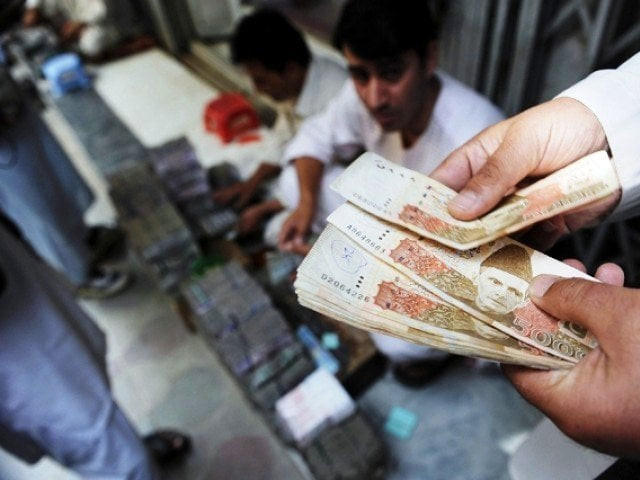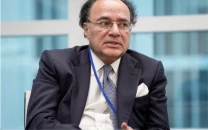Balance of payments: Evolution of policymaking to control budget deficit
There is no ‘one size fits all’ solution to boost exports for development

PHOTO: AFP
The main contributing factor is the high trade deficit since imports outweigh exports.
The import growth remained around 19% while the export growth remained around 11%. There is a dominance of accounting mentality in interpreting CAD where focus in on statistics. This approach is based on historical data, ignores the economic behaviour and structural characteristics of a developing economy.
In the language of debit and credit, exports should exceed imports to have a trade surplus. The usual argument is that the surplus is generated due to exports. Experts associate factors such as law and order, terrorism and energy with the decline of exports.
Why are imports increasing? For them, the buzz word now is the China-Pakistan Economic Corridor (CPEC). Such analysis of exports and imports are devoid of economic content and behaviour.
It is usually recommended that trade surplus is the key to success for a developing economy and policymakers should follow an export-led development strategy to achieve that goal. In this regard, the examples of East Asian countries – Japan, Taiwan, South Korea, Singapore, Hong Kong and Malaysia – are given.
These examples don’t compare the context, culture, social structure and state capacity among the East Asian economies and Pakistan. This also shows that there is no ‘one size fits all’ solution for development.
As far as the case of Pakistan is concerned, it first pursued import substitution strategy which worked well at the initial stage of development. Our powerful bureaucracy played an important role in implementing that policy. The success of the East Asian economics diverted the attention of economists, policymakers and academicians towards the boons of export led development strategy.
This diversion took the economy away from the goalpost. The policymakers could not focus on a single goal since two options emerged: import substitution and export-led development. This confused state of affairs wasted a lot of resources in the last 3 decades. Along with the development, the efficacy of bureaucracy declined.
The policymakers started following the Washington consensus prescription of liberalisation, privatisation and deregulation. Again these prescriptions worked in a few countries and export led development became a dominant strategy. However, a large chunk of countries from Africa, Latin America and South Asia turned out to be a net loser in this regard.
Then came the global financial crisis along with the great recession. These events brought a slight shift in the development thinking and even the multilateral institutions acknowledged that the Washington consensus prescriptions couldn’t work in many countries. Despite acknowledgement, the intellectual inertia persists and policymakers keep on following these prescriptions.
Though the export-led development is talk of the town, it doesn’t mean that it can easily work in Pakistan since there are many a slip between the cup and the lip. It is usually prescribed that devaluation is the key tool to enhance exports. Some would argue that devaluation is required one time, others would say that devaluation should be done in a phased manner.
In short, the lesson of history is that devaluation has turned out to be a short-term solution. The good thing about this tool is that it converges with the political cycle to a great deal. Despite the 5% devaluation since November 2017, the debate is on that rupee hasn’t found its equilibrium value and there is a need to devalue the currency further.
Whether we devalue the currency in one go or in a phased manner, the outcome would be a net loss since structural characteristics of the economy have been ignored in this debate.
The writer is an Assistant Professor of Economics at SDSB, Lahore University of Management Sciences (LUMS)
Published in The Express Tribune, February 5th, 2018.
Like Business on Facebook, follow @TribuneBiz on Twitter to stay informed and join in the conversation.



















COMMENTS
Comments are moderated and generally will be posted if they are on-topic and not abusive.
For more information, please see our Comments FAQ